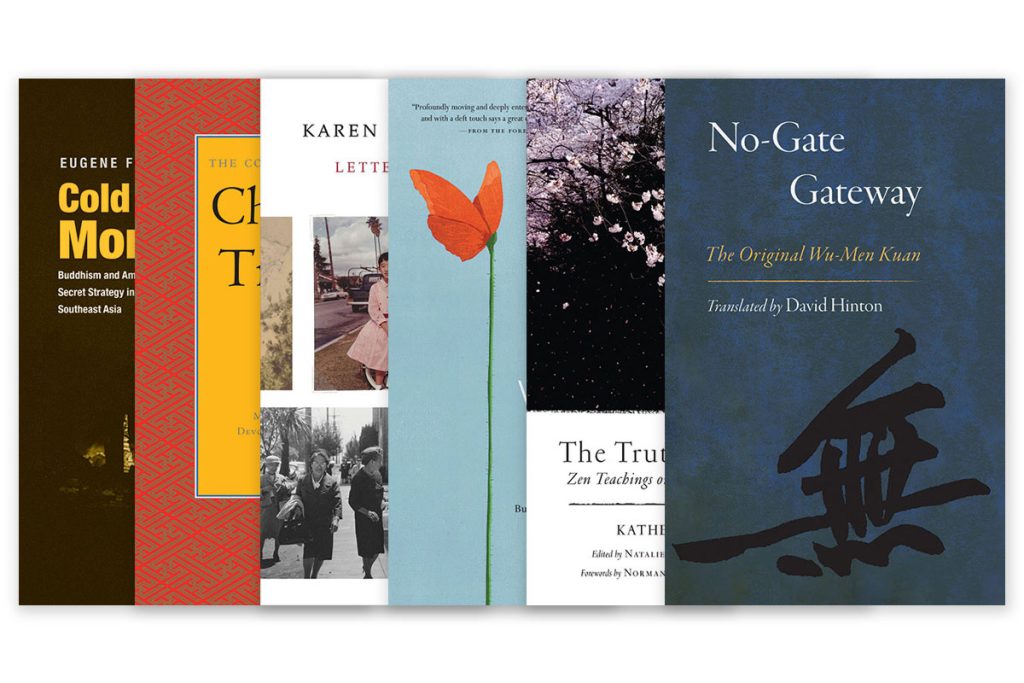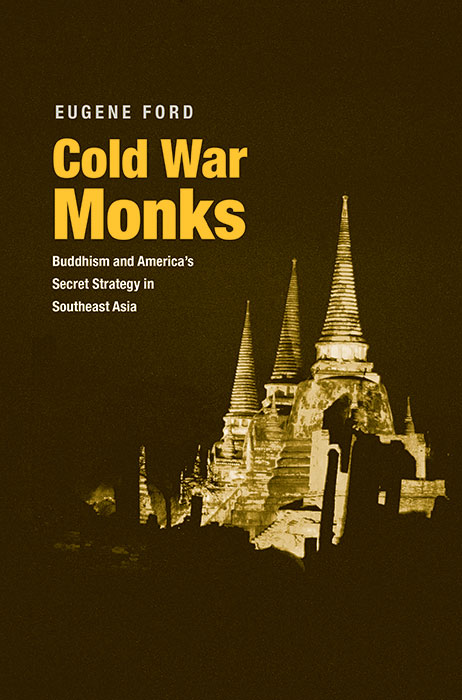
In the 1950s, as communism threatened to spread into Southeast Asia, the United States government began secretly funding a number of Buddhist organizations in the region: officials reasoned that by strengthening the faith of the people, fewer would be attracted to the antireligious ideology of communism. This project, examined in scholar Eugene Ford’s Cold War Monks: Buddhism and America’s Secret Strategy in Southeast Asia (Yale University Press, October 2017, $40.00, 392 pp., cloth), was only one aspect of a wider effort during the period by the U.S. government to turn Buddhism into an anticommunist force.
Ford’s research presents an international tale of secrets, lies, and covert operations showing that Buddhism has always been an integral part of Southeast Asian politics, despite its reputation for somehow “transcending” politics entirely. Ford’s sources include interviews with American and Thai informants, presenting the Cold War from a rarely seen perspective—from within Thailand’s Buddhist monkhood as well as from the Southeast Asian region as a whole.
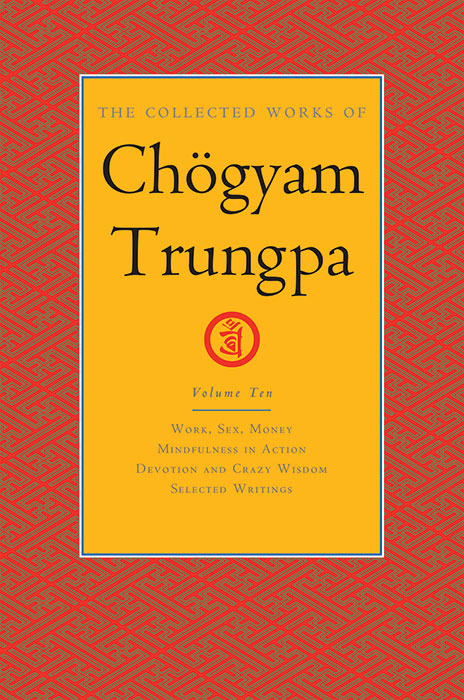
In the course of his lifetime, the Tibetan Buddhist teacher and founder of Shambhala International, Chögyam Trungpa Rinpoche (1939–1987), among the most influential promulgators of Buddhism in the West, penned an impressive body of works, including books, plays, poems, and articles. Before 2004, these were not available in one place; but that year, Shambhala Publications released the first eight volumes of The Collected Works of Chögyam Trungpa, which also included interviews, seminar transcripts, and previously unpublished miscellany by the iconic teacher.
Now volumes 9 and 10 in the series have been released (Shambhala Publications, October 2017, $60.00, 896 and 800 pp., cloth). Volume 9 includes, among other writings, the Shambhala Warrior Slogans, which are based on texts that Trungpa composed between 1976 and 1980, after a series of visionary experiences, and his commentary on the ten oxherding pictures, a celebrated series of pictures representing the Zen student’s steps toward enlightenment. Volume 10 holds three full books (Work, Sex, Money; Mindfulness in Action; and Devotion and Crazy Wisdom) as well as a number of previously unpublished writings.
Series editor Carolyn Rose Gimian has edited the works of Trungpa Rinpoche for more than 25 years, and she says that there are likely more volumes of his collected works to come: more than a thousand talks have never been transcribed, let alone edited or published, and a new generation of editors are being trained to undertake this work. “Chögyam Trungpa has a diverse audience,” she says, “and reaches about 50,000 readers a year. I find that his work rarely appears dated, and I think of him as still an important spiritual voice in America and beyond.” Here, she has added two major anthologies to a literary and scriptural canon for readers worldwide.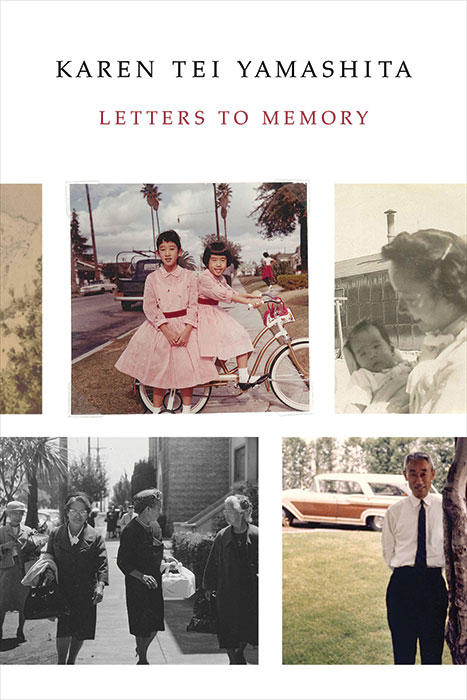
When tens of thousands of Japanese American families were rounded up by the United States government and forced into internment camps during World War II, writer Karen Tei Yamashita’s family members were among them. Letters to Memory (Coffee House Press, September 2017, $19.95, 184 pp., paper) approaches the Yamashitas’ experience during the war in a unique and personal way, weaving together the letters, photographs, journal entries, artworks, and government documents her family members saved during their internment in a remote government camp in central Utah.
Rather than provide an organized narrative, the book offers a cross-section of a family record mixed with fictionalized stories, a format meant to raise questions about family, history, and country. Yamashita curates a selection of documents and intersperses them with her own creative inquiries, writing letters about her relatives’ tales to classical figures associated with war, memory, or storytelling (Homer, Ananda, and Vyasa among them); invoking Buddhist and Christian teachings; and situating her family’s stories in a historical period steeped in racism.
“Memory is passed on so that we may continue to care,” she writes, and by this measure, the book fulfills its purpose: as the Yamashitas come to life as individuals, we come to care not only about their unique fate but also about the fate of the nation. 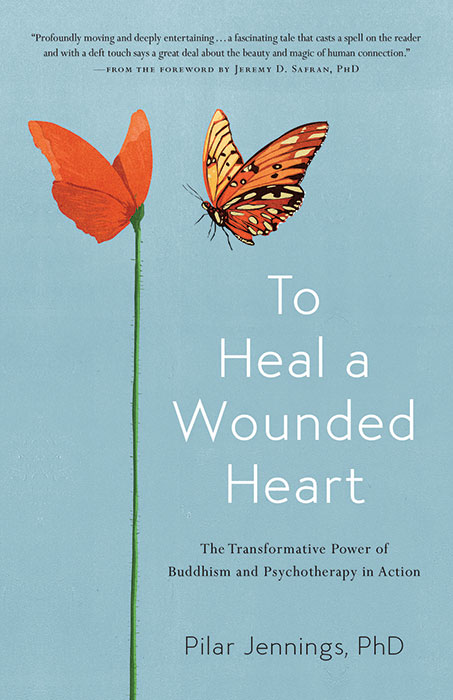
To Heal a Wounded Heart: The Transformative Power of Buddhism and Psychotherapy in Action (Shambhala Publications, December 2017, $18.95, 256 pp., paper), by psychoanalyst Pilar Jennings, recounts the year that Jennings spent treating Martine, a brilliant but nearly mute 6-year-old girl. Treating Martine proved challenging: “In this silent therapeutic space,” Jennings writes, “it seemed I’d lived my way into a Zen koan: how to practice the talking cure with a patient who does not talk?” In response, Jennings made the unorthodox choice to invite her friend Lama Pema, a Tibetan teacher who also had experienced profound trauma at a young age, to join their meetings. Her description of the year they spent together illustrates how Buddhism and psychotherapy each respond to suffering and the process of healing differently: while Buddhism helps us tie our experiences to the collective, psychotherapy helps us excavate the stories and experiences that are uniquely our own.
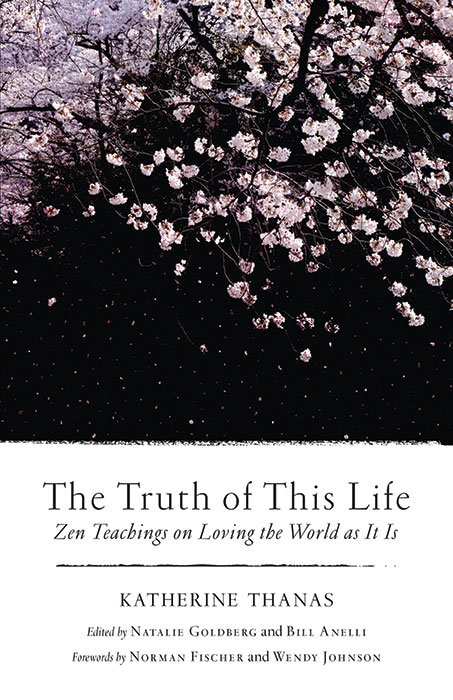
In early American Zen, there were few female role models: one of the first was the Soto Zen teacher Katherine Thanas (1927–2012), a student of Shunryu Suzuki Roshi. A sampling of her writings appears in The Truth of This Life: Zen Teachings on Loving the World as It Is (Shambhala Publications, January 2018, $16.95, 160 pp., paper), a collection of essays originally published in the Santa Cruz Zen Center newsletter.
Raised in a patriarchal Greek family, Thanas spent her twenties and thirties “collecting degrees” until, at age 39, she had a profound spiritual experience while meditating in a Japanese temple. After spending the next 20 years as a student, she received dharma transmission from Tenshin Reb Anderson, founded the Monterey Bay Zen Center, and served as the abbot of the Santa Cruz Zen Center.
The book demonstrates Katherine Thanas Roshi’s ability to tie together personal narratives, Zen teachings, art, and literature: her essays include the words of poets Naomi Shihab Nye, William Stafford, and Rumi alongside those of historical Zen masters such as Dogen and contemporary teachers such as Katagiri Roshi. Using these writings and examples drawn from her own life, she makes even abstruse Zen concepts clear. “Stay with the situation,” friends recall her saying, and the short pieces offered in The Truth of This Life may well help readers do just that.
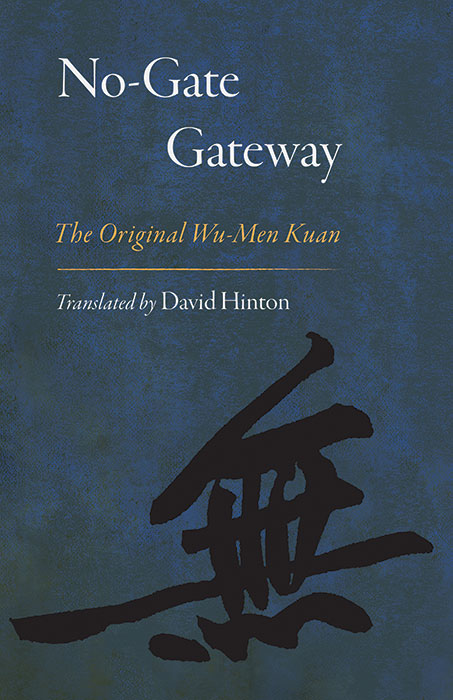 In No-Gate Gateway: The Original Wu-Men Kuan (Shambhala Publications, February 2018, $16.95, 168 pp., paper), American poet and translator David Hinton has presented a fresh translation of the Mumonkan, one of the best-known works in the Chan tradition. Written by Wu-men Hui-kai (1183–1260), a wandering Chan master of the Rinzai school, it presents 48 of the best-known kung-an, (Japanese, koan), or “public cases,” so called because the practice was originally given before the monastic community; Hinton’s translation of the term is “sangha-cases.” Before Wu-men’s compilation, these enigmatic anecdotes taken from records of master teachers were typically presented in prose for students to contemplate, but Wu-men distilled the stories, edited them for greatest poetic effect, and paired each with a brief prose commentary and gatha, or sutra-poem.
In No-Gate Gateway: The Original Wu-Men Kuan (Shambhala Publications, February 2018, $16.95, 168 pp., paper), American poet and translator David Hinton has presented a fresh translation of the Mumonkan, one of the best-known works in the Chan tradition. Written by Wu-men Hui-kai (1183–1260), a wandering Chan master of the Rinzai school, it presents 48 of the best-known kung-an, (Japanese, koan), or “public cases,” so called because the practice was originally given before the monastic community; Hinton’s translation of the term is “sangha-cases.” Before Wu-men’s compilation, these enigmatic anecdotes taken from records of master teachers were typically presented in prose for students to contemplate, but Wu-men distilled the stories, edited them for greatest poetic effect, and paired each with a brief prose commentary and gatha, or sutra-poem.
Hinton’s translation comes without the additional commentary we see in contemporary Western editions of the work, and his reader’s guide can help practitioners deepen their study. The book also includes translator’s notes, though these aren’t placed in text. Thus, readers may linger on each case, allowing the reading experience to loosen their proclivity for binary thought.
Thank you for subscribing to Tricycle! As a nonprofit, we depend on readers like you to keep Buddhist teachings and practices widely available.
